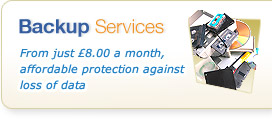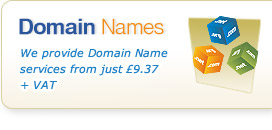Virus & Malware Trends: The Kryptic Trojan
5th February 2015
Viruses are a topic that just won't go away – although often now referred more generally as "Malware”, the basic issue remains the same. All of the various malware – viruses, Trojans and so on all cause nuisances that creative all kinds of havoc with your IT systems – from general irritations to serious problems such as stealing data, information and security credentials to sending confidential data elsewhere.
This year we're already seeing and dealing with a large amount of malware that has the sole purpose of disrupting our customers work by making them massively vulnerable to security threats. As we‘ve mentioned, malware, if left to its own devices, can cause some serious damage to anything from your files to the performance of your computers and beyond, so it is something to take seriously.
Surprisingly while there are literally millions of variants, there are actually only a handful of main types of actual Malware – most of which has the same few root software behind it (you can actually buy "virus making kits” which includes the basics to get you started). That said, each main type has been branched out into the thousands of new variants we see every month that all have very different purposes and act in very different ways. This can makes Malware removal an interesting game of "whack-a-mole” as it were – as soon as people understand how to tackle them and software updates we see the trend change, with the old style starting to sizzle out, a completely different kind will suddenly appear! Since early in December, we've been seeing one type over and over again in subtle but annoyingly different ways… known generally as the Kryptik Trojan
What is "Kryptik” and what is a "Trojan”?
Actually, it's easier if we answer this the other way around! A Trojan is a particular form of Malware that basically throws open the doors of your computer bypassing security and restrictions, which then allows all the other different types of Malware to infect your devices. Essentially it's the house guest you never willingly invited in to begin with, but calls all of its friends and invites them in too!
Kryptik is simply another branch of the common Trojan that seems more focused on staying well hidden – the less obvious it is, the better the chances of it getting other more damaging malware onto your system. Worse still, it's not only Malware that gets let in; in an absolute worst case scenario these Trojans even allow the people who created them have access the stuff on your computer!
The reason for the name "Trojan” is simple - the heritage of its name accurately summarises how it works, like the real Trojan Horse this form of Malware looks harmless, but really isn't a gift that you would want and ultimately contains a nasty surprise – although it's a little more successful than the Trojan horse efforts in the classic Monty Python Holy Grail!
Most commonly we find it infects a customers computers through being an attachment to an email. Sometimes an e-mail can look and smell dodgy of course and most people don't fall for those these days – but increasingly, the alleged sender looks pretty realistic – and in some cases there's a good chance you might legitimately deal with the real company that is purported to send the e-mail – lowering the users defences – once opened, the Trojan bundles itself into the computer, allowing these undesirable activities to begin.
How do you get rid of it?
First things first – if you're already infected the chances are you'll need some professional help – especially if the issue has been around for a while as your computers Anti-Virus and so on may no longer work properly as a result, and if you've got a serious number of infections you'll find the computer has some very odd behaviour that makes it difficult to remove. We certainly recommend you avoid trying to find online help for it simply because a lot of the help ultimately wants you to download software – some of which itself is also malware and just adds to your issues. Better to be safe than sorry and call an IT Support company who can provide specialist assistance. In most cases you can be cleared up and operational within a few hours at most.
Remember that by design, this software tries to hide so will appear as legitimate software, take measures to stealth itself from view and so on – so you might not even realise you are infected! Accordingly, it can be a headache to get rid of this type of infection. It sometimes takes us a lot of effort and numerous tools to get things back to normal, which can be quite really time consuming – but you do need to do something about it before it gets worse – the quicker it's addressed the less your risk and the faster we're likely to be able to help you.
How do I prevent it?
The usual advice applies here like with anything else of this nature. Firstly, always have a decent, up to date Anti-Virus product. This often does mean a paid product as many of the "free” products are either poor at detection, or have infrequent updates – get professional advice on this as it's not a one size fits all scenario. Secondly, just don't download, open or view anything you aren't 100% sure about – better to be safe than sorry. So those unexpected e-mails with attachments – avoid them. If you receive e-mails asking you to go online, click a link in an e-mail and so on but you had no reason to expect such an e-mail, avoid it.
Already with VPW?
If you're a VPW customer, and you take e-mail services from us you should seriously consider our Cloud Screening Anti-Virus & Anti-Spam Service which provides considerable protection to reduce your vulnerability in particular to e-mail based malware efforts as well as reducing the general volume of spam – in fact we've recently written a blog about our recent experiences with detection of Spam through that very system you might be interested in
Not yet with us?
If you need help with removing viruses, or just your IT Services in general, why not speak to a member of our team – we'd be more than happy to help you and see what your options are to keep you safe. Give us call on 01392 950 950 and let's keep your business safe!




